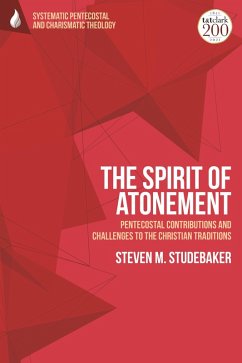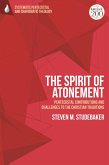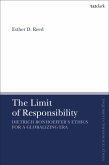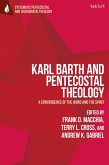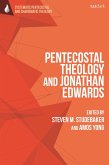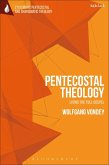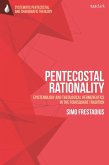Steven M. Studebaker proposes a Pentecostal approach to a major Christian doctrine, the atonement. The book moves Pentecostal theology of the atonement from a primarily Christocentric and crucicentric register to one that articulates the pneumatological and holistic nature of Pentecostal praxis. Studebaker examines the irony of Classical Pentecostalism relying on the Christocentrism of Protestantism evangelical atonement theology to articulate its experience of the Holy Spirit, as well as the Pneumatological nature of Pentecostal praxis. He then develops a Pentecostal theology of atonement based on the biblical narrative of the Spirit of Pentecost and returns to re-imagine an expanded vision of Pentecostal praxis based on the theological formation of the biblical narrative.
The result is a Pentecostal atonement theology that shows the integrated nature of pneumatology, creation and Christology in the biblical narrative of redemption. It gives theological expression to not only the pneumatological nature of Pentecostal praxis, but also the fundamental role of the Holy Spirit in the biblical narrative of redemption. The book challenges popular western atonement theologies to re-think their Christocentrism and crucicentrism as well as their atomistic tendency to separate soteriology into objective (Christological) and subjective (pneumatolgical) categories.
The result is a Pentecostal atonement theology that shows the integrated nature of pneumatology, creation and Christology in the biblical narrative of redemption. It gives theological expression to not only the pneumatological nature of Pentecostal praxis, but also the fundamental role of the Holy Spirit in the biblical narrative of redemption. The book challenges popular western atonement theologies to re-think their Christocentrism and crucicentrism as well as their atomistic tendency to separate soteriology into objective (Christological) and subjective (pneumatolgical) categories.

